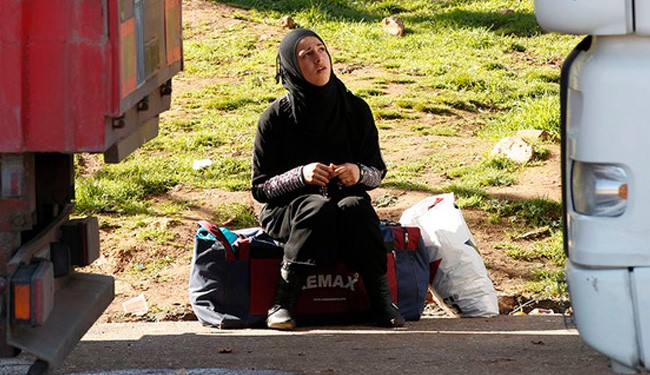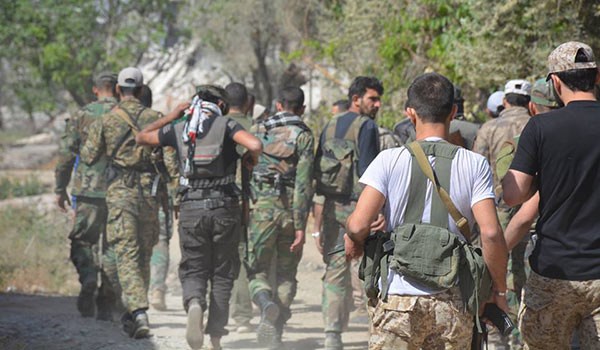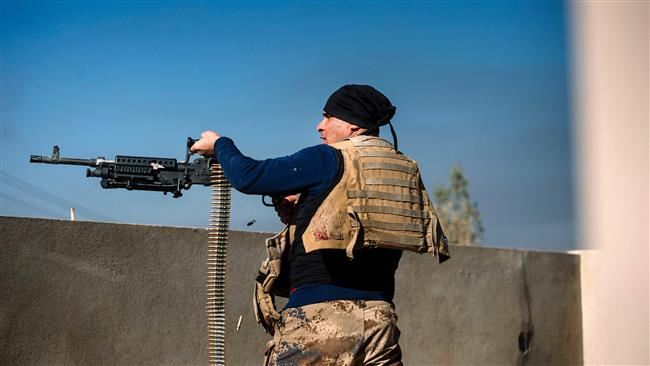Shocking report: Syrian women humiliated, exploited in Turkey

Dima is a confident 21-year-old with pale skin and big brown eyes. Her black headscarf is wrapped loosely around her head above her pink dress. She has two small children and a husband, but he currently works as a cab driver in Lebanon.
Every month, Adly sends her money. However, it has been hard to make a living as a refugee, prompting Dima to look for a job as well.
A few months ago, Dima found a job in a cotton factory in Reyhanli, a Turkish town near the border with Syria. In the first few weeks, everything went fine — until her Turkish boss, a middle-aged widower, began to sexually harass her.
“I told him I didn’t want him to grope or touch me, but he said that if I wanted to work, I should accept it,” she told Al-Monitor while sitting in front of her tent in a small village near Reyhanli.
Her boss didn’t listen. A few days later, he groped her again, saying that she could make extra money by “entertaining” him. When Dima refused, he asked her if she could at least work as a matchmaker and find some young Syrian girls for him and his friends, adding, “Those girls can certainly use the money.”
Dima ran out of the factory without her paycheck. She never went back.
“A lot of Syrian women need work, and employers know that,” she said, her frustration clear on her face. “Men take advantage of the vulnerability of female Syrian refugees. We left Syria to protect our honor, and now we are being treated like animals.”
Before Dima left Syria, she was a marketing student at Tishreen University in Latakia. After she got married and had children, she still took classes every day. Her husband supported her, she said, as he wanted her to succeed in life.
“I miss him so much,” she added.
Women refugees from Syria are being sexually harassed by employers, landlords and even aid distributors in Lebanon, reported Human Rights Watch Nov. 27, 2013. The organization “interviewed a dozen women who described being groped, harassed and pressured to have sex.”
According to Dima, young Syrian women are facing the same difficulties in Turkey, including early marriages, abuse and even prostitution. She personally knows of many Syrian girls who were forced to marry older Turkish men for money. This mainly happens in families where there is no father or older brother to support them financially. Young Syrian women, therefore, are becoming the most vulnerable citizens, many of them having lost everything during the war and struggling to survive.
Although Turkey is arguably one of the best(?) countries to be a Syrian refugee, gender-related problems are on the rise, a female employee of an aid organization, who wished to remain anonymous, told Al-Monitor.
“Especially in the camps and in villages, women are suffering. A lot of 15- or 16-year-olds are forced to marry because it provides financial stability and protection,” she said. “Parents think that this is the best option, but in fact it causes a lot more problems, because they don’t know the future husband that well.”
She also mentioned that because of the lack of room inside refugees’ houses and tents, domestic violence, including sexual violence, is rising as well.
In another village near Reyhanli, Abu Mohammed sits in front of his one-bedroom cottage. Surrounded by his six single daughters, all between the ages of 14 and 23, he talks about the hardships of living here. He gets angry when asked if he would ever consider marrying one of daughters to an older man who offers a lot of money.
“Are you kidding me? Those marriages all end up in prostitution,” he said, referring to short-term marriages.
Abu Mohammed heard that one of his Syrian acquaintances “sold” his underage daughter to a Turkish man. The wedding was done in secret by a local sheikh, as Turkey does not allow people under the age of 18 to get married. After a few days, the man brought the girl back to her family.
There are around 20 cases like this to Abu Mohammed’s knowledge in Reyhanli, which is why he’s going to make sure his daughters “marry a Syrian man in the future.”
He added, “Syrians will treat them better, I hope.”
Early and forced marriages are happening in all the neighboring countries where Syrian refugees are seeking safety. However, it is also part of their traditions to marry early, the United Nations reported. A study concluded that 44% of Syrian refugees identified the normal age of marriage for girls between 15 and 17 years.
For example, in camps like Za’atari, in Jordan, girls as young as 14 are being married off, fearing attacks in the world’s second-largest refugee camp.
Zeina, a single mother of three children, sits with her 15-year-old daughter Mariam in a park in Reyhanli. Mariam just married her distant cousin Hassan, a 22-year-old Syrian, Zeina told Al-Monitor.
“It was a sober event rather than a happy fest,” she explained.
At first, Zeina didn’t want her daughter to marry her cousin, but after a while, she considered it necessary. Zeina’s husband died over a year ago, killed by a sniper, and the family was forced to flee to Turkey after their house was destroyed.
Paying the bills is hard, Zeina said. Her first landlord kicked her out after she couldn’t pay the rent. All of a sudden, her cousin from Syria showed up. He stayed with them and contributed by paying the rent and other expenses.
“It is not proper to have a male living in an apartment with women only,” Zeina explained to Al-Monitor. “That’s why Mariam had to marry him. Besides, he found a job over here, so he can support us.”
After the wedding, Mariam dropped out of school. Now she spends her days as a housewife. While her mother talks, she remains quiet, until I ask if she wanted to marry her cousin.
“No, but it was the right thing to do,” she answered, staring at her golden wedding ring. Her mother gave a look of remorse.
Most of the young Syrian refugees marry out of a sense of duty to their parents. The parents are struggling to cope financially with immense hardships caused by the war, and the daughter sacrifices herself by agreeing to marry.
“In Syria, I would have never allowed it. But here … Well, it is really hard to be a Syrian woman over here,” Zeina said.
The sense of humiliation for Syrian families struggling to survive is inescapable.
“Please don’t judge us,” Zeina pleaded.
source: alalam




